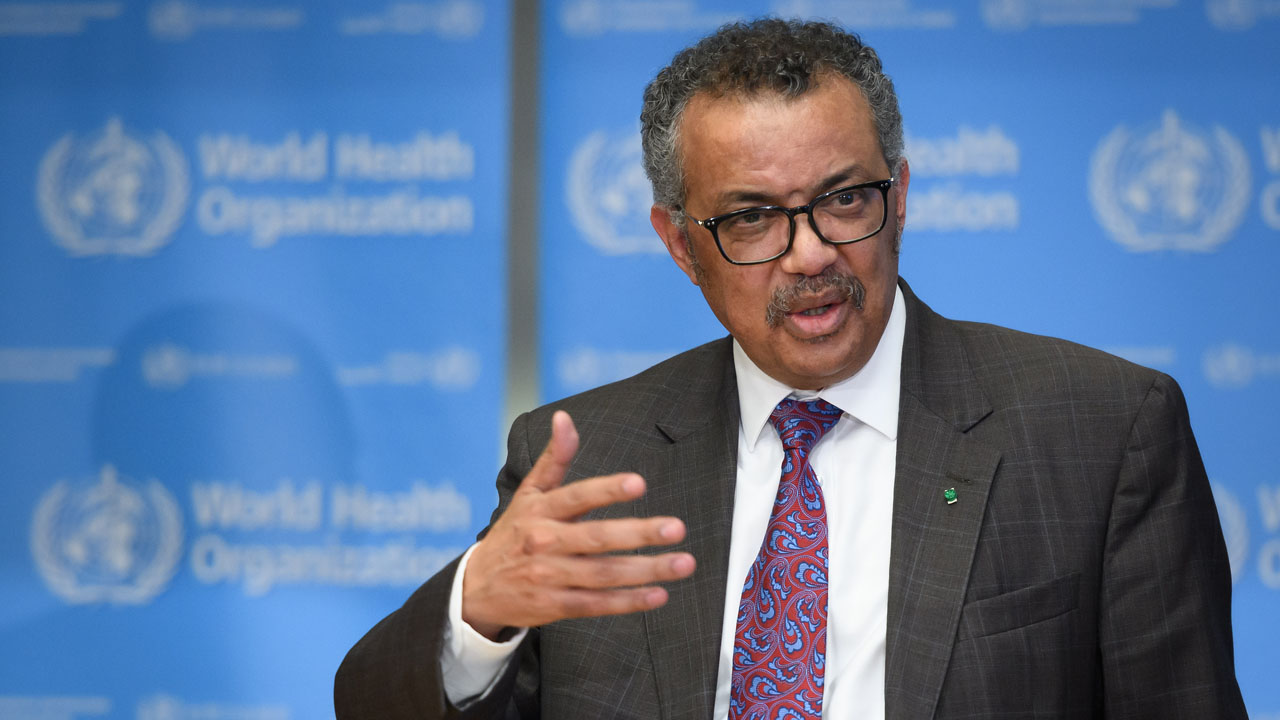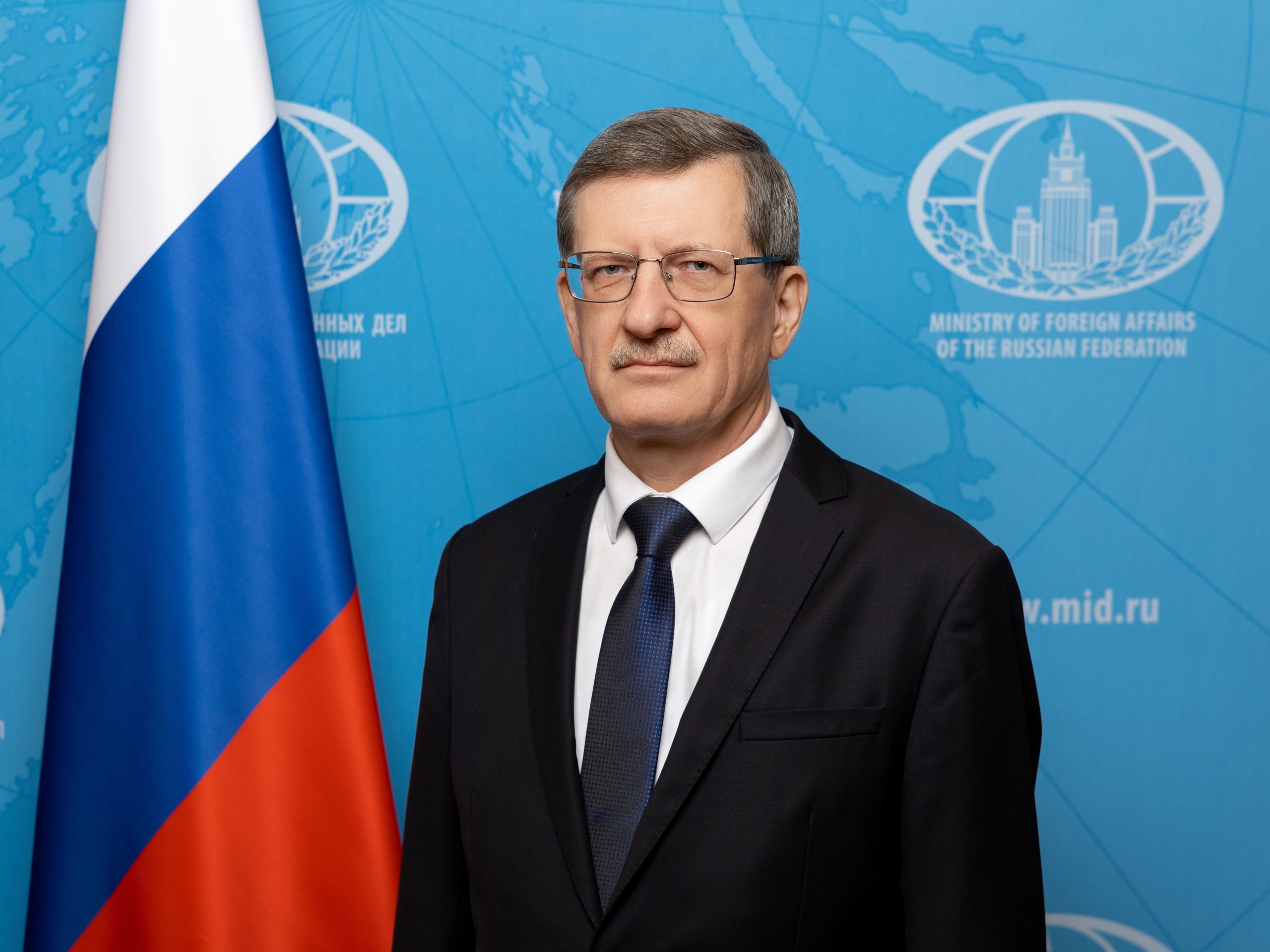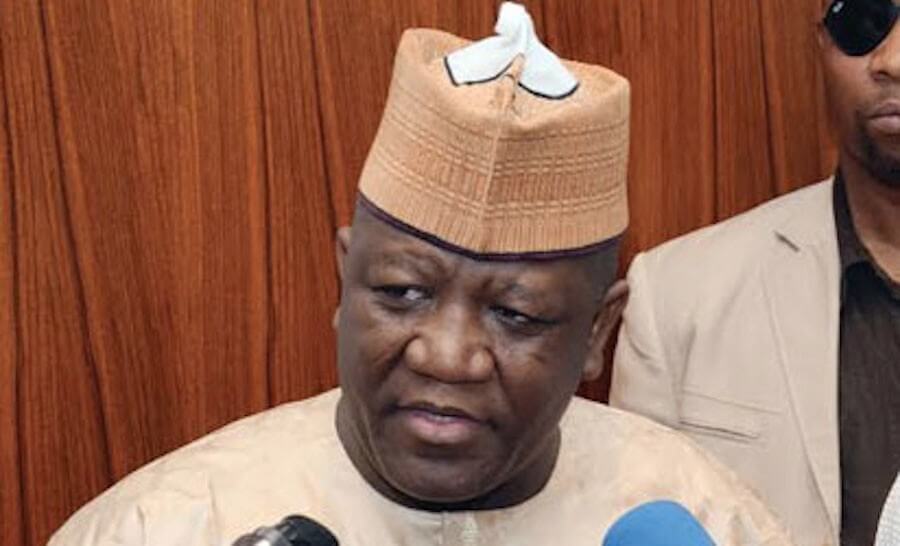
• Africa gets 1.5% of doses given worldwide
• Four Nigerians die of COVID-19 after a week of no fatality
• Why EU chose Ghana over Nigeria as possible manufacturing hub for COVID-19 vaccines
• We’re not ready to produce human vaccine, says Tomori
With more than 75 per cent of all COVID-19 vaccines administered in just 10 countries and Africa recording a paltry 1.5 per cent of doses administered worldwide, the World Health Organisation (WHO) has raised the alarm over a “scandalous inequality” in COVID-19 vaccine distribution, while calling for more protection of poor and developing countries.
WHO Director-General, Tedros Adhanom Ghebreyesus, warned that no country should assume that it’s “out of the woods,” no matter its vaccination rate, as long as the SARS-CoV-2 virus and its variants spread elsewhere.
“The world remains in a very dangerous situation. As of today, more cases have been reported so far this year than in the whole of 2020. On current trends, the number of deaths will overtake last year’s total within the next three weeks. This is very tragic,” he said.
This is coming a day after four Nigerians were reported to have died of the coronavirus disease on Tuesday, exactly eight days after the last fatality was recorded. The Nigeria Centre for Disease Control (NCDC) reported on its official Twitter handle Tuesday night that there were 37 new cases recorded in five states and the Federal Capital Territory (FCT).
The new cases have increased the total number of confirmed cases in the country to 166,098 with the new figure of fatalities standing at 2,071.
The announcement of the new deaths is coming barely two days after the Federal Government declared 90 travellers as ‘health hazards,’ calling on Nigerians to beware of them and help to seek their whereabouts.
Speaking at the UBA Africa Day event on Tuesday, the WHO boss stated that Africa cannot keep relying on imported vaccines and needs to develop the capacity to manufacture its own vaccines to prepare for the next pandemic.
“Although Africa has not yet seen the same scale of devastation from the pandemic, the impact has been profound for lives, livelihood, systems and economies. The poor are vulnerable and hit hardest. Africa has not escaped and we can’t let down our guard because what is happening now in many parts of the world, can also happen in our continent.
“With the support of COVAX, 47 countries have started vaccinating, however, the volume is nowhere enough. So far, Africa has administered over 25 million doses or 1.5 per cent of the global total. This is very tragic.”
MEANWHILE, medical experts have provided answers to why the European Union (EU) chose Ghana over Nigeria as possible manufacturing hub for COVID-19 vaccines in Africa. They blamed the situation on corruption, insecurity, weak healthcare infrastructure, poor leadership, non-accountability and transparency, inconsistent monetary and tax policies, and inadequate electricity supply.
The medical experts said international organisations would prefer to ship finished vaccines to Nigeria than grapple with obstacles to local production in the country. They also said Nigeria needs about four vaccine factories to adequately meet her immunisation needs.
The EU had last week in Rome, Italy announced that it intends to invest 1 billion euros (about US$1.2 billion) to build COVID-19 vaccine manufacturing hubs in Africa. The EU had unveiled the selection of Ghana as a possible manufacturing hub for COVID-19 vaccines in Africa.
A consultant virologist and Chairman Expert Review Committee on COVID-19, Prof. Oyewale Tomori, told The Guardian: “Ghana will always have an edge over Nigeria. People will go to where it is easier to do business, where honesty truth integrity accountability and transparency are second nature.
“We are not yet ready to produce human vaccines, and it is a shame that we are not ready presently. If we maintain the momentum we now have, we should be able to do so a few more years.”
Tomori, who was the pioneer Vice Chancellor of Redeemer’s University and a consultant to the World Health Organisation (WHO), said the challenges hindering Nigerians are many and multifaceted – from inconsistent government policies that make it impossible to set and meet long term goals and objectives; add to that, the overriding of national interests by personal interests by people who would rather prefer that Nigeria continues to import vaccines through translucent procurement processes. He said there are also the time bomb obstacles placed in the way of doing business in Nigeria; getting approvals needed by potential partners becomes a forever obstacle and steeplechase race.
A consultant pharmacist and former President, Pharmaceutical Society of Nigeria (PSN), Mr. Olumide Akintayo, told The Guardian that Nigeria is not a favourite destination point to site projects in healthcare settings principally because of its dysfunctional health system, grounded on poor choices in ministerial and other appointments as well as extremely weak institutions.
Akintayo said government at all levels must begin to see health as business in some dimensions especially the areas, which border on human relationship and resource management.
A cardiologist and Executive Director, Nigerian Heart Foundation (NHF), Dr. Kingsley Kola Akinroye, told The Guardian: “Briefly, few prominent reasons are security, enabling environment, functioning infrastructure and committed personnel.”
Medical Director of Merit Healthcare and consultant pharmacist told The Guardian: “We are the architects of our problems. Everything about the country is upside down. There is insecurity all over the place and everyone is scared. “Corruption is pervasive and no Government institution or agency is free.”
A vaccinologist and virologist, Dr. Simon Agwale, told The Guardian: “Well my understanding is that EU plans to invest €1 billion ($1.2 billion) to support the building of local vaccine manufacturing capabilities in Africa to help the continent become more self-sufficient in fighting the coronavirus.”
Agwale, who is also the Chief Executive Officer (CEO) of Innovative Biotech Nassarawa State, said the government of Ghana has given local vaccine manufacturing the desired political support it deserves by establishing a committee to specifically work on the framework and also called for proposals from willing companies, so it is natural that potential investors will be attracted to the country. He said even though building a vaccine factory is not rocket science, but it is also not a trivial thing if not you would have seen vaccine-manufacturing plants all over the place.
The vaccinologist said the funding of these potential vaccine-manufacturing facilities would depend on the bankability of their business plans amongst other requirements. “Innovative Biotech for example will be resenting its strategy for building a full circle vaccine manufacturing plant in Nigeria, that is both forward and backward integration, on Thursday May 27th and I encourage you to participate to learn more about what it takes to build a functional vaccine manufacturing facility,” Agwale said.
A consultant Obstetrician and Gynaecologist and Medical Director, Optimal Specialist Hospital, Surulere, Lagos, Dr. Celestine Ugochukwu Chukwunenye, told The Guardian that the edge Ghana has over Nigeria is not only in health matters. “Even though we are much bigger than Ghana in terms of population, land mass, human and natural resources, poor leadership and governance has continued to make Nigeria a dwarf and a laughing stock among the committee of nations. Intellectually, Nigeria rates very high among the nations of the world but it seems our intellectuals lack the courage and other wherewithal to provide good leadership for the country,” Chukwunenye explained.






